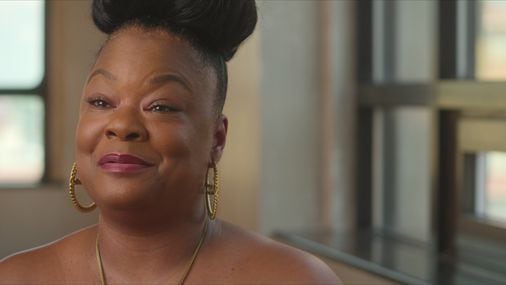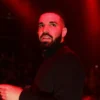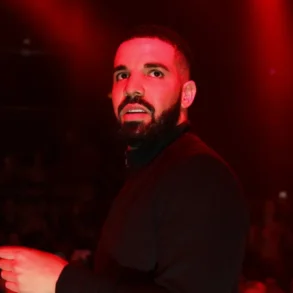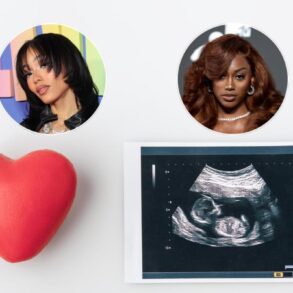
In 1979, a Boston funk saxophonist named Prince Charles Alexander released his debut album. That same year he began hearing “Rapper’s Delight” by the Sugarhill Gang. He wasn’t impressed.
“Three guys talking on a record, and they don’t even own the record?” recalls Alexander, referencing how the first hip-hop megahit was recorded over an initially unauthorized sample of Chic’s “Good Times.” “I thought this will go away, this is a fad, an anomaly, a blip. And then it just didn’t go away.”
Neither did Alexander. After a string of major-label records and international tours, he transitioned into engineering and production, working with the likes of Mary J. Blige, Puff Daddy, and the Notorious B.I.G. On Tuesday, the longtime Berklee professor will be one of three inaugural inductees into the Berklee Hip-Hop Hall of Fame, alongside Boston hip-hop pioneer Edo G. and early New York MC Roxanne Shanté.
The inductions will be part of a concert at Berklee Performance Center Tuesday celebrating 50 years of hip-hop. Student musicians from Berklee, student dancers from Boston Conservatory at Berklee, spoken-word artist Amanda Shea, and current Boston hip-hop great Oompa will honor the inductees before Shanté closes the evening with her own set.
Like the Berklee Gospel Music Hall of Fame, which was launched at a concert last spring, the hip-hop honors are being produced by Berklee’s Africana Studies Division. “The idea is to pay homage to those who have come before us,” says the division’s dean, Dr. Emmett G. Price III. “This is an opportunity to make connections from the contemporary repertoire to the repertoire that serves as the shoulders that contemporary artists stand on.”
“We couldn’t do anything in Boston without thinking about Edo G., who was one of the first hip-hop artists to break out of Boston,” says Price of the Roxbury-bred artist who led Ed O.G. and Da Bulldogs, a group that topped Billboard’s Hot Rap Songs chart in 1991. “He was a beatboxer early on and then emerged as an MC in a number of groups until he had Ed O.G. and Da Bulldogs.”
When Price was considering a national artist to honor, he found the answer just by turning on his satellite radio and hearing Shanté, who hosts a show on Sirius/XM’s Rock the Bells channel. Shanté became one of rap’s first female superstars when, at just 14, she released “Roxanne’s Revenge” in 1984.
“There can be some tensions in hip-hop dealing with the issues of gender, and the masculine male bravado — it can be a machismo type of cultural expression,” Price says. “But those of us who remember the early days know that these sisters were out there rocking the mic, so what a fitting opportunity to bring in one of the queens to inaugurate this award.”
The electro-funk pumped out by Prince Charles and the City Beat Band also has a place in local hip-hop history thanks to “Tight Jeans,” a track from their debut LP “Gang War” that finds Charles offering a proto-rap and call and response. “I’m not a rapper, but I did hedge my bets,” explains Alexander, “so I was the first Boston artist who rapped on record.”
Alexander grew up in Castle Square at a time when the South End was a Black music mecca for blues and jazz clubs. He learned clarinet at Boston Latin, then got his first saxophone gig while a student at Brandeis by backing Boston group the Energetics at a tiny joint called Roscoe’s Lounge. “It was the Chitlin’ Circuit,” laughs Alexander as he remembers his mother’s dismay.
Proprietor Roscoe Gorham also worked with the Johnson Brothers, who included future music mogul Maurice Starr. Starr and Alexander became collaborators. Tony Rose, who would go on to become an important and tireless promoter of Black Boston culture, started managing Alexander and landed him a deal with Virgin Records. The City Beat Band opened for Duran Duran at Madison Square Garden and even played in the United Kingdom for another Prince Charles, but by the mid-’80s Alexander knew that funk would soon be eclipsed by hip-hop.
“I had met Nile Rogers, and he was always in the studio, all day and all night. And who is in the studio with Nile? The engineer,” says Alexander, who first learned his way around a console from a course he saw advertised in the back of the Village Voice.
At the time, rock engineers still dominated the studio scene, so Alexander’s background gave him an advantage. “I was thinking about how can I get the biggest, fattest sound, with lots of bottom, and make everyone’s head bob on the dance floor,” says Alexander, who recently turned his studio philosophy into a book called “Hip-Hop Production: Inside the Beats.” “I knew there was something about using your ear training that could make music resonate with audiences.”
Even in the age of rappers who become Tik-Tok stars making music on their phones, Alexander thinks there’s still a place for the engineer. “As those artists grow and gain partnerships — record companies, publishers — the demand for their music to meet certain standards rises, and the educated engineers do step forward, and they can make the artist’s creativity even more accessible.”
50TH ANNIVERSARY OF HIP-HOP CELEBRATION
At Berklee Performance Center, 136 Massachusetts Ave. Nov. 28 at 8 p.m. Tickets $12 in advance, $17 day of show. etix.com
Noah Schaffer can be reached at noahschaffer@yahoo.com.
This post was originally published on this site be sure to check out more of their content.







